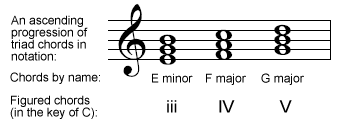Perhaps there is no greater challenge to a serious composer of school band sheet music than creating an interesting and challenging composition for either the young band or the beginning band. Composing for these groups is not the focus of the university composition programs. The education of the composer in major universities covers all aspects of music composition from learning to write Bach style fugues to film scoring.
The set of skills that the band music composer obtains at the university is complex and complete, but writing band music for beginning band requires composers to develop a new mindset. Composers must write motifs, rhythms, and forms that are clearly understandable to young band students and to put those elements together in a way that will motivate beginning band students to work hard and learn more. It is not easy to write sheet music that will energize young band students and at the same time meet the restrictions of the first or second year learning levels.
An example of band music that does meet the requirements of a successful beginning band composition is “Abacus” by Tom Tucker of PDF Band Music. A quick look at the score of “Abacus” reveals that no instrument range exceeds the notes learned by an average beginning band student. Clarinet parts to not cross the “break” and the highest note for trumpet is fourth line “D”. Rhythmically this sheet music does have some sixteenth notes in the percussion parts, but in all other parts, the most complex rhythm is eighth notes.
The middle section of “Abacus” is interesting because of the variety of time signatures. Beginning with a two-measure phrase in ¾ time the melodic line ascends stepwise up to a major fifth. The ¾ measures are followed by a measure of 4/4 time and then a measure of 2/4 time. The dynamic changes from pianissimo to forte and the variety of time signatures give this section of “Abacus” a unique flavor and yet, it is very playable by beginning band students.
“Abacus” is an excellent example of how band sheet music can be composed in such a way that the beginning band student, the conductor, and the audience feel they are performing and listening to sheet music of merit.
Much of the challenge of energizing young band students to continue to musically achieve is on the shoulders of band music composers. There has never been a better time for composers of band sheet music to publish because of the growing number of online music publishing websites such as PDFBandMusic.com.
Article Directory: Article Dashboard |


